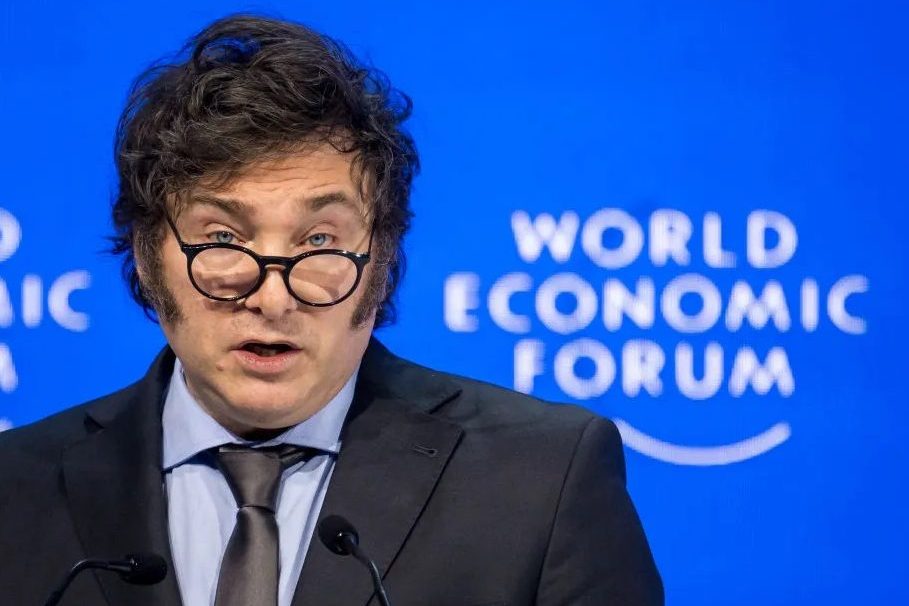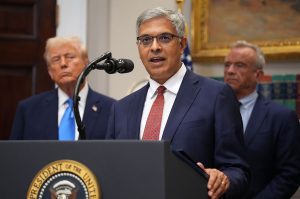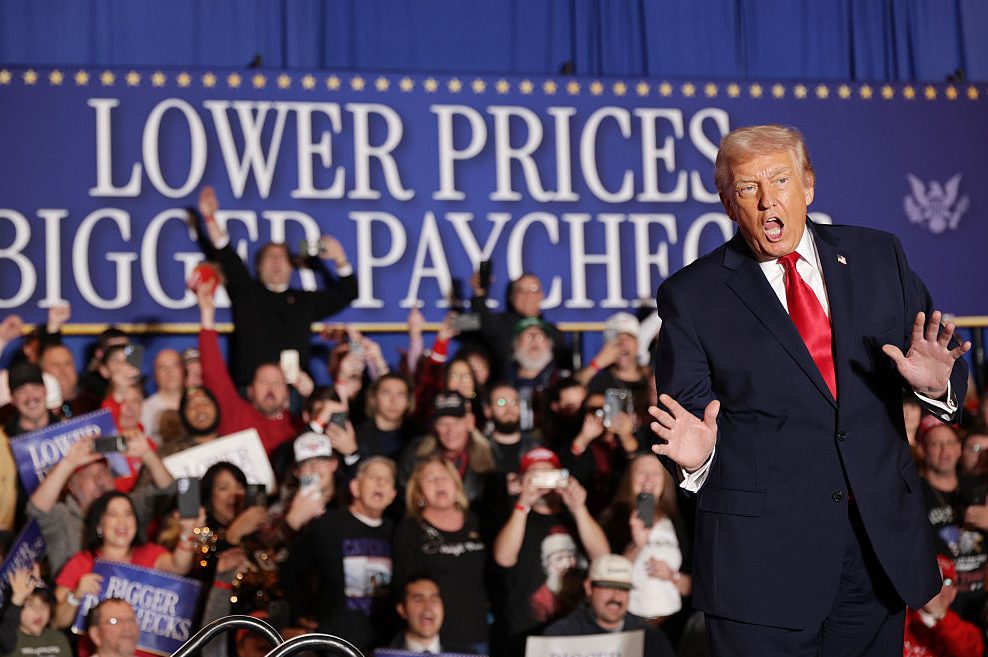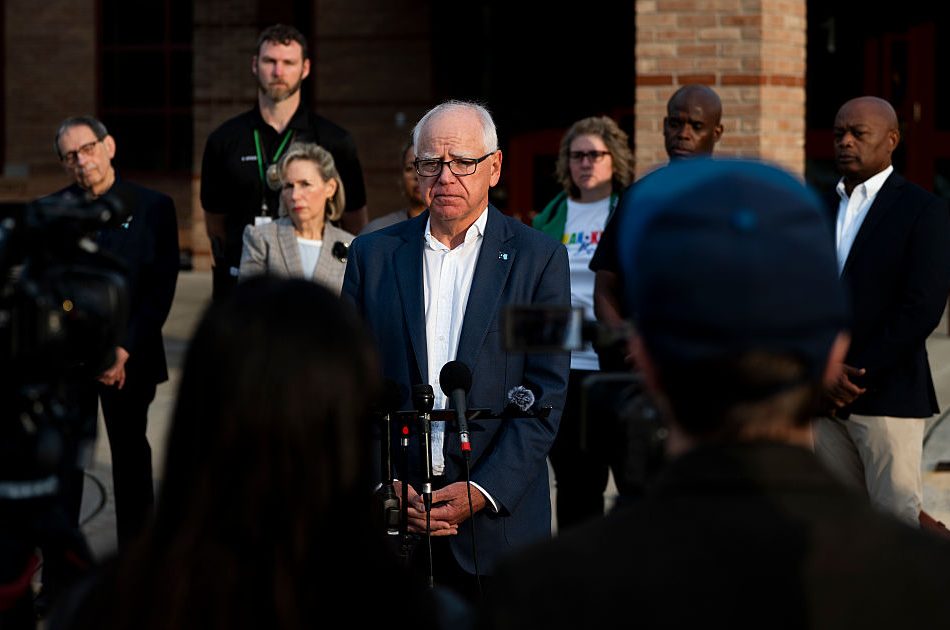Each year the World Economic Forum’s conference in Davos, Switzerland, draws the attention of conspiracy theorists. In truth, nothing is happening in the ski town that doesn’t happen every other day of the year: it’s the world’s most senior politicians and biggest business leaders working together to implement their vision for the future. The only difference is that for one week in Switzerland, this is on full display for everyone to see.
It’s not the funny business happening behind the scenes that should cause alarm, but what we can see so blatantly in front of our eyes: the calls for higher taxes, the support for a bigger state, the insistence for more red tape (the kind that helps businesses already at Davos secure their position and makes it harder for the entrepreneur to ever join them). It’s picture-perfect crony capitalism — the kind that turns people off the idea of free enterprise more generally, because so many parts of the system are rigged. Each year world leaders line up behind the idea that the answers to our countless problems simply require a bit more intervention from 3,000 people in attendance at a Swiss ski resort.
But credit goes to the WEF this year for inviting the antidote to the conference’s misguided ideals — and giving him a platform on the center stage. Argentina’s newly elected President Javier Milei’s twenty-three-minute speech swiftly and eloquently dismantled the underlying assumption of the Davos conference: that the state and its friends tend to know best. In a total break with the usual platitudes spouted at Davos, Milei opted instead for an unabashed defense of free market capitalism — the only system, he said, which is really “morally desirable” because of its proved outcomes for people.
The president embraced his previous profession as an economist, starting his speech with a history of global growth and prosperity. What we see is an “explosion” of growth once capitalism is adopted, he told the audience, which takes the “shape of a hockey stick” (i.e. an exponential rise). “Thanks to free enterprise capitalism, the world is now living its best moment” he said. “Today’s world is more free, more rich, more peaceful, and more prosperous than in any other time of human history.”
But Milei has no interest in living in the past: indeed he insisted that his country must provide a contemporary example of what can happen when socialism is implemented. The president is currently working to stabilize the Argentinian economy and prepare the way for classically liberal reforms as he tries to get a grip on the country’s inflation rate, which currently sits at over 200 percent. Argentina should become the warning, he said, for what happens when western countries that “got rich” off of a “model of freedom” trade that freedom for the “road to servitude.”
“The main leaders of the western world have abandoned the model of freedom for different versions of what we call collectivism,” said Milei. “We’re here to tell you that collectivist experiments are never the solution to the problems that afflict the citizens of the world — rather they are the root cause.” These shouldn’t be considered extraordinary remarks to hear at an economics conference. Sadly, they are. But his robust attack on socialism was only a warning to fellow politicians. It was also a warning to business leaders — a call to arms for entrepreneurial “heroes” to break with the cronyism of political friendships and contracts and to risk the competition of free markets.
Do not live in fear of the “parasites who live off the state,” he insisted. To the disappointment of his critics who keep trying to label the new president as “far right,” Milei was not talking about those who might take benefits or rely on safety nets. Rather, he was talking about the bureaucratic class for whom a big state is necessary to preserve their way of life: a “political class that wants to stay in power and retain its privileges.” It will have made for uneasy listening at a conference like Davos, which is founded on the idea of bringing the state and business into closer partnership.
What a refreshing break from the norm
Milei’s speech was not the first time we’ve heard that the “western world is in danger.” Arguably it’s been the theme of the past four years, as the pandemic, growing trade wars and the rise of strongmen who make good on their promises to wage war have exposed the West’s many weaknesses. But Milei’s warning was unique, in that it brought attention to another pressing danger that is not as openly discussed by politicians these days: the rise of economic illiberalism among western countries. The refusal of politicians (still) to acknowledge the role domestic decisions played in the inflation crisis and spiraling debt, for example, highlights how economic dangers to western society aren’t just being ignored, but often deliberately swept under the carpet.
It’s never a good idea to get too excited about a politician — hitching your ideological hopes to an elected official almost certainly guarantees heartbreak. It is far too early to write the story of Milei. We don’t know how his plans for Argentina will pan out. But the deliberate attempts to compare him to dictators (or Donald Trump) seem less credible by the day. With each intervention we get from the Argentinian president, we do not see a politician reaching for authoritarian levers or pivoting towards protectionist populism to gather support. Instead, we see a politician doubling down on the classically liberal values that make up a free society.
Add to that, at Davos, a plea from Milei to others to “defend the values of the West have been coopted by a vision of the world that inexorably leads to socialism, and therefore to poverty.” What a refreshing break from the norm.
This article was originally published on The Spectator’s UK website.


























Leave a Reply